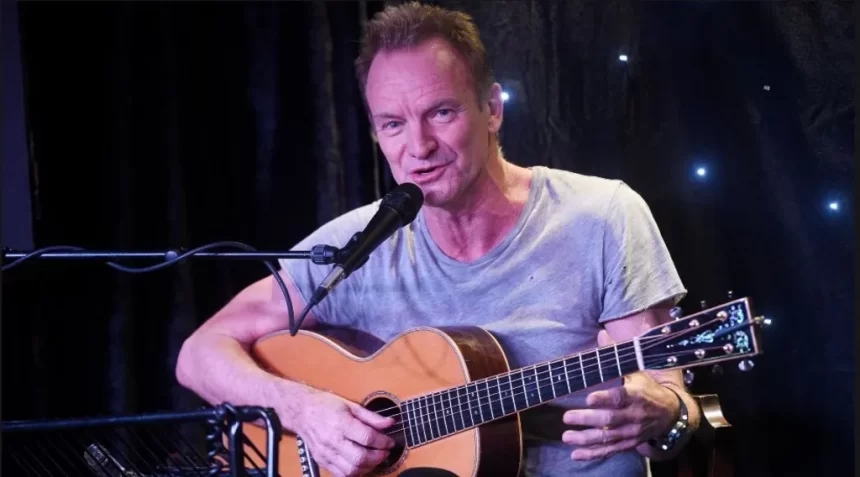Sting is in a reflective mood. The Grammy-Award-winning singer-songwriter grew up in Wallsend near Newcastle upon Tyne and tells me he is “very proud” of his Tyneside roots.
But the musician is less complimentary about the way the North East of England has been, as he puts it, “wilfully neglected by successive governments for decades”.
As he announces a significant donation to an arts institution in Gateshead, he also told the BBC: “The statistics for child poverty in the area are discouraging”.
It’s clear from our communication that Sting wants to give back to the place and the culture that made him.
The former Police frontman is donating an undisclosed amount to the Baltic Centre for Contemporary Art, sometimes described as the Tate Modern of the North East of England.
It’s nearly 50 years since The Police released their debut album featuring tracks such as Roxanne and Can’t Stand Losing You.
Those decades have brought him everything a boy who dreamed of musical success could have wished for; he’s sold more than 100 million albums worldwide, as The Police frontman and bassist, and later as a solo artist.
In 2022, he also made a reported $300m (£222m), selling his back catalogue to Universal Music Group.
The years haven’t been as kind to the region where he was raised and where a third of babies, children and young people grow up in poverty, according to recent data from the End Child Poverty Coalition.
When Sting was born Gordon Sumner in 1951, the son of a milkman and a hairdresser, the North East still had a proud tradition of shipbuilding. He’s previously said that his earliest memory was “a massive ship at the end of my street, towering over the houses and blotting out the sun”.
But after the decline of that industry, Sting – the yellow and black sweater he wore while performing in a jazz band as a teenager earned him the nickname and it stuck – tells me, despite “all the empty promises of ‘levelling up'”, for years governments have disregarded the North East, “ignoring its significant historical contribution to national life, both industrial and cultural”.
In response to Sting’s criticisms, a government spokesman said it would “fix the crisis we have inherited”.
It’s investing £140m in the seven most deprived towns in the North East, including Washington and Jarrow, as part of a wider £1.5bn investment across the country and told the BBC it is “taking decisive action to tackle the scourge of child poverty”.
He remembers a childhood rich in culture, despite his humble beginnings. “We didn’t have any books in the house”, he tells me by email, but “I was fortunate in the 60s to have had access to Wallsend library”.
He also recalls access to drama at the People’s Theatre in Jesmond, one of the oldest non-professional theatre companies in the UK, visits to the Laing Art Gallery and also making his professional debut as a musician in the orchestra pit at The University Theatre.
“All of these institutions gave me a sense of the world beyond the shipyard where I was raised.”
The River Tyne’s most famous shipyard, Swan Hunter in Wallsend, shut in 1993. Sting describes the now disappeared shipyard to me as “a real and symbolic victim of Government neglect if not betrayal”.
He tells me “I had to leave the area to ‘make it'” – he moved to London in 1977 and soon after formed The Police with guitarist Andy Summers and drummer Stewart Copeland – but his ties to the North East still apparently run deep.



